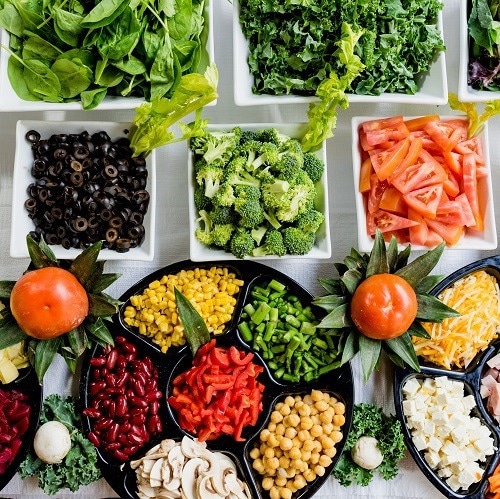Men who consume colourful fruits and vegetables on a regular basis are less likely to be diagnosed with prostate cancer (PC), according to new research by University of South Australia scientists.

Image Credit: University of South Australia
A rainbow of foods rich in certain micronutrients helps to prevent prostate cancer (PC) as well as speed up recovery among men who undergo radiation treatment for the disease.
The findings, from two studies published in the journal Cancers, highlight the importance of a Mediterranean or Asian diet that includes these foods.
Researchers compared micronutrient plasma concentrations of prostate cancer patients with a healthy control group, revealing low levels of lutein, lycopene, alpha-carotene, and selenium in PC patients and high levels of iron, sulphur, and calcium in the same group, relative to controls.
Increased DNA damage after radiation exposure was also associated with low lycopene and selenium in blood plasma.
Men with plasma concentrations lower than 0.25 micrograms (ug) per millilitre (mL) for lycopene and/or lower than 120ug/L for selenium have an increased risk of prostate cancer and are likely to be more sensitive to the damaging effects of radiation.
Foods that are rich in lycopene include tomatoes, melons, papayas, grapes, peaches, watermelons, and cranberries. Selenium-rich foods include white meat, fish, shellfish, eggs, and nuts.
Study co-author Dr Permal Deo says eating foods that are naturally rich in lycopene and selenium is preferable to taking supplements, where the benefits are limited, according to previous studies.
Our recommendation is to adopt a Mediterranean diet enlisting the help of a dietician because people absorb nutrients in different ways, depending on the food, the digestive system, the person’s genotype and possibly their microbiome.”
Dr Permal Deo, Co-Author
Prostate cancer remains one of the most common and fatal cancers in men, but the nutritional deficiencies associated with it remain largely unknown, hence this study.
Other risk factors, such as ethnicity, family history and age have previously been linked to prostate cancer.
“There is strong evidence that being overweight and tall increases the risk of prostate cancer. Diets high in dairy products and low in vitamin E may also increase the risk but the evidence is less clear.”
Vitamin E is found in plant-based oils, nuts, seeds, fruits, and vegetables.
The research is the first to evaluate plasma concentrations of micronutrients and trace elements with respect to prostate cancer in the South Australian population.
Source:
Journal reference:
Dhillon, V.S., et al. (2023) Plasma Micronutrient Profile of Prostate Cancer Cases Is Altered Relative to Healthy Controls—Results of a Pilot Study in South Australia. Cancers. doi.org/10.3390/cancers15010077.